- Home
- Harlan Coben
the Woods (2007) Page 5
the Woods (2007) Read online
Page 5
"We brought in a witness to identify the body," York went on. "This witness seems to feel that the victim could be your son Gil."
Mrs. Perez closed her eyes. Mr. Perez stiffened. For a few moments no one spoke, no one moved. Perez did not look at his wife. She did not look at him. They just stood there, frozen, the words still hanging in the air.
"Our son was killed twenty years ago," Mr. Perez said at last.
York nodded, not sure what to say.
"Are you saying that you've finally found his body?"
"No, I don't think so. Your son was eighteen when he vanished, correct?" "Almost nineteen," Mr. Perez said. "This man, the victim, as I mentioned before, he was probably in his late thirties."
Perez's father sat back. The mother still hadn't moved.
York dove in. "Your son's body was never found, isn't that correct?"
"Are you trying to tell us'a?"
Mr. Perez's voice died off there. No one jumped in and said, "Yes, that's exactly what we are suggesting, that your son Gil has been alive this whole time, twenty years, and didn't tell you or anyone else, and now, when you finally have the chance to be reunited with your missing child, he's been murdered. Life's a gas, ain't it?"
Mr. Perez said, "This is crazy."
"I know what it must sound like-"
"Why do you think it's our son?"
"Like I said before. We have a witness."
"Who?"
It was the first time that I had heard Mrs. Perez speak. I almost ducked. York tried to sound reassuring. "Look, I understand you're upset-" "Upset?" The father again.
"Do you know what it's like'a can you imagine'a?"
His voice died off again. His wife put her hand on his forearm. She sat up a little straighter, for a second she turned to the window and I was sure she could see me through it. Then she met York's eye and said, "I assume you have a body."
Yes, maam.
"And that's why you brought us here. You want us to look at it and see if it's our son."
"Yes."
Mrs. Perez stood. Her husband watched her, looking small and helpless.
"Okay," she said. "Why don't we do that?"
Mr. and Mrs. Perez started down the corridor.
I followed at a discreet distance. Dillon was with me. York stayed with the parents. Mrs. Perez held her head high. She still gripped the purse tight against her as though she feared a snatcher. She stayed a step ahead of her husband. So sexist to think it should be the other way around, that the mother should collapse while the father pushed on. Mr. Perez had been the strong one for the "show" part. Now that the grenade had exploded, Mrs. Perez took the lead while her husband seemed to shrink farther back with every step.
With its worn floor of linoleum and walls of scrape-the-skin concrete, the corridor couldn't have looked more institutional without a bored bureaucrat leaning against it on a coffee break. I could hear the echo of the footsteps. Mrs. Perez wore heavy gold bracelets. I could hear them clank in rhythm with the walking.
When they turned right at the same window I had stood in front of yesterday, Dillon stuck out his hand in front of me, almost in a protective way, as if I were a kid in the front seat and he'd just stopped short. We stayed a good ten yards back, maneuvering so that we stayed out of their line of vision.
It was hard to see their faces. Mr. and Mrs. Perez stood next to each other. They did not touch. I could see Mr. Perez lower his head. He was wearing a blue blazer. Mrs. Perez had on a dark blouse almost the color of dried blood. She wore a lot of gold. I watched a different person, a tall man with a beard this time, wheel the gurney toward the window. The sheet covered the body.
When it was in place, the man with the beard glanced toward York. York nodded. The man carefully lifted the sheet, as if there were some thing fragile underneath. I was afraid to make a sound, but I still tilted my body a little to the left. I wanted to see some of Mrs. Perez's face, at least a sliver of profile.
I remember reading about torture victims who want to control something, anything, and so they fight hard not to cry out, not to twist up their face, not to show anything, not to give their tormenters any satisfaction whatsoever. Something in Mrs. Perez's face reminded me of that. She had braced herself. She took the blow with a small shudder, nothing more.
She stared a little while. Nobody spoke. I realized that I was holding my breath. I turned my attention toward Mr. Perez. His eyes were on the floor. They were wet. I could see the quake cross his lips.
Without looking away, Mrs. Perez said, "That's not our son."
Silence. I had not expected that.
York said, "Are you sure, Mrs. Perez?"
She did not reply.
"He was a teenager when you last saw him," York continued. "I understand he had long hair."
"He did."
"This man's head is shaven. And he has a beard. It's been a lot of years, Mrs. Perez. Please take your time."
Mrs. Perez finally wrested her eyes from the body. She turned her gaze toward York. York stopped speaking.
"That's not Gil," she said again.
York swallowed, looked toward the father. "Mr. Perez?"
He managed a nod, cleared his throat. "There's not even much of a resemblance." His eyes closed and another quake ran across his face. "It's just'a"
"It's the right age," Mrs. Perez finished for him.
York said, "I'm not sure I follow."
"When you lose a son like that, you always wonder. For us, he'll be forever a teenager. But if he had lived, he would be, yes, the same age as this husky man. So you wonder what he'd be like. Would he be married? Have children? What would he look like?"
"And you're certain this man isn't your son?"
She smiled the saddest smile I had ever seen. "Yes, Detective, I am certain." York nodded. "I'm sorry to bring you out here." They began to turn away when I said, "Show them the arm." Everyone turned in my direction. Mrs. Perez's laser gaze zeroed in on me. There was something there, a strange sense of cunning, a challenge maybe. Mr. Perez spoke first.
"Who are you?" he asked.
I had my eyes on Mrs. Perez. Her sad smile returned. "You're the Copeland boy, aren't you?"
Yes, maam.
"Camille Copeland's brother."
"Yes."
"Are you the one who made the identification?"
I wanted to explain about the clippings and the ring, but it felt as though I was running out of time. "The arm," I said. "Gil had that awful scar on his arm."
She nodded. "One of our neighbors kept llamas. He had a barbed-wire fence. Gil was always a good climber. He tried to get into the pen when he was eight years old. He slipped and the wire dug deep into his shoulder." She turned to her husband. "How many stitches did he need, Jorge?"
Jorge Perez had the sad smile now too. "Twenty-two."
That was not the story Gil had told us. He had weaved a tale about a knife fight that sounded like something out of a bad production of West Side Story. I hadn't believed him then, even as a kid, so this inconsistency hardly surprised me.
"I remembered it from camp," I said. I gestured with my chin back toward the glass. "Look at his arm."
Mr. Perez shook his head. "But we already said-"
His wife put a hand up, quieting him. No question about it. She was the leader here. She nodded in my direction before turning back to the glass. "Show me," she said.
Her husband looked confused, but he joined her at the window. This time she took his hand and held it. The bearded man had already wheeled the gurney away. York knocked on the glass. The bearded man startled upright. York beckoned him to bring the gurney back toward the window. He did.
I moved closer to Mrs. Perez. I could smell her perfume. It was vaguely familiar, but I didn't remember from where. I stood maybe a foot behind them, looking between their heads.
York hit the white intercom button. "Please show them his arms."
The bearded man pulled back the sheet, again using that gentle, re
spectful technique. The scar was there, an angry slash. A smile returned to Mrs. Perez's face, but what type, sad, happy, confused, fake, practiced, spontaneous?, I couldn't say.
"The left," she said. "What?" She turned to me. "This scar is on the left arm," she said. "Gil's was on the right. And Gil's wasn't that long or deep."
Mrs. Perez turned to me and put a hand on my arm. "It's not him, Mr. Copeland. I understand why you'd so much want it to be Gil. But it's not. He isn't coming back to us. And neither is your sister."
Chapter 6
When I got back to my house, Loren Muse was pacing like a lion near a wounded gazelle. Cara was in the backseat. She had dance class in an hour. I wasn't taking her. Our nanny, Estelle, was back today. She drove. I overpay Estelle and don't care. You find someone good who also drives? You pay them whatever they want. I pulled into my driveway. The house was a three-bedroom split-level that had all the personality of that morgue corridor. It was supposed to be our "starter" house. Jane had wanted to upgrade to a McMansion, maybe in Franklin Lakes. I didn't care much where we lived. I'm not into houses or cars and would pretty much let Jane have her way on that kind ofstuff.
I missed my wife.
Loren Muse had a something-eating grin locked onto her face. No poker player was Muse, that was for certain. "I got all the bills. Computer records too. The works." Then she turned to my daughter. "Hi, Cara."
"Loren!" Cara shouted. She jumped out of the car. Cara liked Muse. Muse was good with kids. Muse had never been married, never had any of her own. A few weeks ago I met her most recent boyfriend. The guy wasn't in her league, but that again seemed to be the norm for single women of a certain age.
Muse and I spread everything out on the den floor-witness statements, police reports, phone records, all the fraternity's bills. We started with the frat bills, and man, there were a ton. Every cell phone. Every beer order. Every online purchase.
"So," Muse said, "what are we looking for?" "Damned if I know." "I thought you had something." "Just a feeling."
"Oh, gag me. Please don't tell me you're playing a hunch." "I would never," I said. We kept looking.
"So," she said, "basically we're going through these papers looking for a sign saying, "Big Clue This Way'?" "We are looking," I said, "for a catalyst." "Good word. In what way?"
"I don't know, Muse. But the answer is here. I can almost see it." "Ooookay," she said, managing with great effort not to roll her eyes. So we searched. They ordered pizza pretty much every night, eight pies, from Pizza-To-Go, directly billed to their credit card. They had Netflix so that they could rent regular DVD movies, three at a time delivered to your door, and something called HotFlixxx, so they could do the same with dirty ones. They ordered fraternity frat-logo golf shirts. The frat logo was also on golf balls, tons of them.
We tried to put them in some kind of order. I don't have a clue why. I lifted the HotFlixxx bill and showed it to Muse. "Cheap," I said. "The Internet makes porn readily accessible and thus affordable to the masses."
"Good to know," I said.
"But this might be an opening," Muse said.
"What is?"
"Young boys, hot women. Or in this case, woman."
"Explain," I said.
"I want to hire someone outside the office."
"Who?"
"A private eye named Cingle Shaker. Have you heard of her?"
I nodded. I had.
"Forget heard," she said. "Have you seen her?"
"No."
"But you've heard?"
"Yeah," I said. "I've heard."
"Well, it's no exaggeration. Cingle Shaker has a body that not only stops traffic, it pulls up the road and bulldozes highway dividers. And she's very good. If anyone can get lawyered-up frat boys to spill, it's Cingle."
"Okay," I said.
Hours later-I can't even tell you how many, Muse started to rise. "There's nothing here, Cope." "Seems that way, doesn't it?" "You have Chamique's direct first thing in the morning?" "Yes." She stood over me. "Your time would be better spent working on that."
I did a mock "yes, sir" salute in her direction. Chamique and I had worked on her testimony already, but not as hard as one might imagine. I didn't want her to sound practiced. I had another strategy in mind.
"I'll get you what I can," Muse said.
She stomped out the door in her best lick-da-world mode.
Estelle made us all dinner, spaghetti and meatballs. Estelle is not a great cook, but it went down. I took Cara out for Van Dyke's ice cream afterward, a special treat. She was chattier now. In the rearview mirror, I could see her strapped into the car seat. When I was a kid, we were allowed to sit in the front seat. Now you had to be of drinking age before that was permissible.
I tried to listen to what she was saying but Cara was just yakking pure nonsense the way kids do. It seems Brittany had been mean to Morgan so Kyle threw an eraser and how come Kylie, not Kylie G, Kylie N ' there were two Kylies in her class, how come Kylie N didn't want to go on the swings at recess unless Kiera was on one too? I kept glancing at her animated face, scrunched up as though imitating an adult. I got hit with that overwhelming feeling. It sneaked up on me. Parents get it from time to time. You are looking at your child and it is an ordinary moment, not like they are onstage or hitting a winning shot, just sitting there and you look at them and you know that they are your whole life and that moves you and scares you and makes you want to stop time.
I had lost a sister. I had lost a wife. And most recently, I had lost my father. In all three cases I had gotten off the canvas. But as I looked at Cara, at the way she talked with her hands and widened her eyes, I knew that there was indeed one blow from which I could never rise.
I thought about my father. In the woods. With that shovel. His heart broken. Searching for his little girl. I thought about my mother. She had run away. I didn't know where she was. Sometimes I still think about searching her out. But not that often anymore. For years I had hated her. Maybe I still do. Or maybe now that I have a child I understand a little better about the pain she must have been going through.
When we walked back into the house, the phone rang. Estelle took Cara from me. I picked it up and said hello. "We got a problem, Cope."
It was my brother-in-law, Bob, Gretas husband. He was chairman of the charitable fund JaneCare. Greta, Bob and I had founded it after my wife's death. I had gotten lots of wonderful press for it. My living memorial to my lovely, beautiful, gentle wife.
My, what a wonderful husband I must have been.
"What's the matter?" I asked.
"Your rape case is costing us big-time. Edward Jenrette's father has gotten several of his friends to back out of their commitments."
I closed my eyes. "Classy."
"Worse, he's making noises that we've embezzled funds. EJ Jenrette is a well-connected son of a bitch. I'm already getting calls."
"So we open our books," I said. "They won't find anything."
"Don't be naive, Cope. We compete with other charities for the giving dollar. If there is even a whiff of a scandal, we're finished." "Not much we can do about it, Bob." "I know. It's just that'a we're doing a lot of good here, Cope." "I know." "But funding is always tough." "So what are you suggesting?" "Nothing." Bob hesitated and I could tell he had more to say. So I waited. "But come on, Cope, you guys plea-bargain all the time, right?"
"We do."
"You let a lesser injustice slide so you can nail someone for a bigger one."
"When we have to."
"These two boys. I hear they're good kids."
"You hear wrong."
"Look, I'm not saying that they don't deserve to be punished, but sometimes you have to trade. The greater good. JaneCare is making big strides. It might be the greater good. That's all I'm saying."
"Good night, Bob."
"No offense, Cope. I'm just trying to help."
"I know. Good night, Bob."
I hung up. My hands were shaking. Jenrette, that son of a b
itch, hadn't gone after me. He had gone after my wife's memory. I started up stairs. Rage consumed me. I would channel it. I sat at my desk. There were only two pictures on it. One was the current school photo of my daughter, Cara. It had a prized spot, dead center.
The second photograph was a grainy picture of my Noni and Popi from the old country, Russia, or, as it was called when they died in that gulag, the Soviet Union. They died when I was very young, when we still lived in Leningrad, but I have vague recollections of them, especially my Popi's big shock of white hair.
Why, I often wondered, do I keep this picture out?
Their daughter, my mother, had abandoned me, right? Dumb when you thought about it. But somehow, despite the obvious pain intertwined, I find the picture oddly relevant. I would look at it, at my Noni and Popi, and I would wonder about ripples and family curses and where it all might have started.
I used to keep out pictures of Jane and Camille. I liked having them in view. They brought me comfort. But just because I found comfort in the dead, that didn't mean my daughter did. It was a hard balance with a six-year-old. You want to talk about her mother. You want her to know about Jane, her wonderful spirit, how much she would have loved her little girl. You want to offer some kind of comfort, too, that her mother was up in heaven looking down on her. But I didn't believe in that. I want to. I want to believe that there is a glorious afterlife and that above us, my wife, my sister and my father are all smiling down. But I can't make myself believe it. And when I peddle it to my daughter, I feel as though I'm lying to her. I do it anyway. For now it feels like Santa Claus or the Easter Bunny, something temporary and soothing, but in the end, she, like all children, will learn it is yet another parental lie with minimum justification. Or maybe I'm wrong and they are up there looking down on us. Maybe that is what Cara will conclude someday.
At midnight I finally allowed my mind to go where it wanted to, my sister, Camille, Gil Perez, that awful, magical summer. I flashed back to camp. I thought about Camille. I thought about that night. And for the first time in several years, I let myself think about Lucy.
A sad smile crossed my face. Lucy Silverstein had been my first real girlfriend. We'd had it so good, a fairy-tale summer romance, until that night. We never had the chance to break up, we were, instead, ripped apart by bloody murders. We were torn away while still enmeshed in each other, at a point where our love, as silly and immature as it was supposed to have been, was still rising and growing.

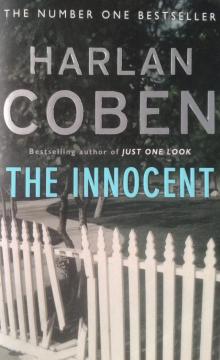 The Innocent
The Innocent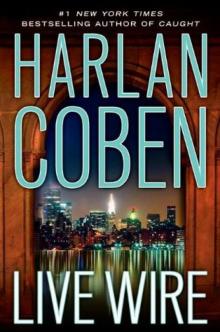 Live Wire
Live Wire Play Dead
Play Dead Drop Shot
Drop Shot Seconds Away
Seconds Away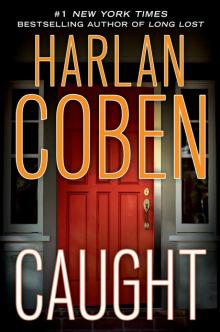 Caught
Caught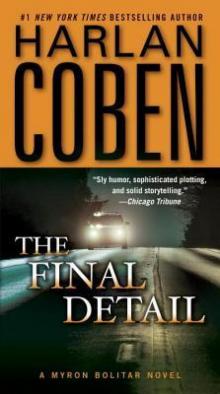 The Final Detail
The Final Detail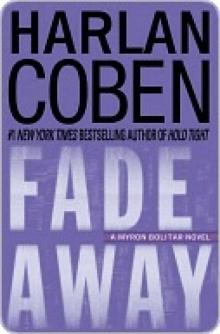 Fade Away
Fade Away Home
Home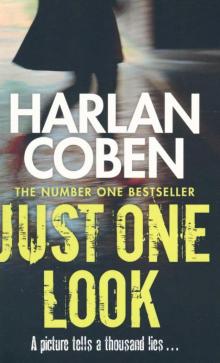 Just One Look
Just One Look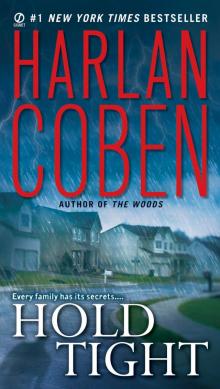 Hold Tight
Hold Tight Fool Me Once
Fool Me Once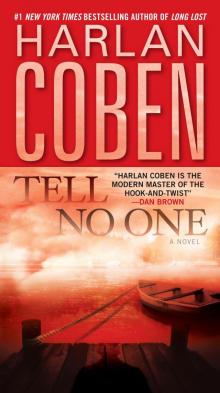 Tell No One
Tell No One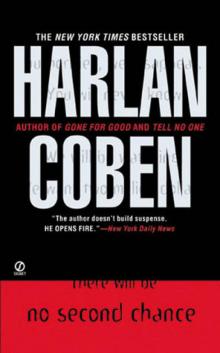 No Second Chance
No Second Chance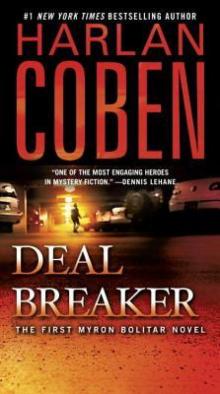 Deal Breaker
Deal Breaker Long Lost
Long Lost One False Move
One False Move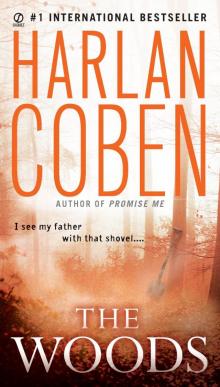 The Woods
The Woods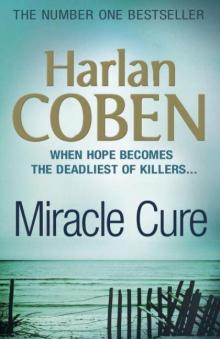 Miracle Cure
Miracle Cure Found
Found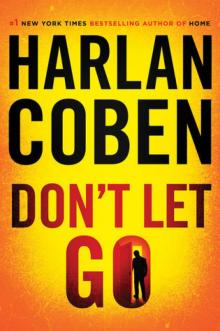 Don't Let Go
Don't Let Go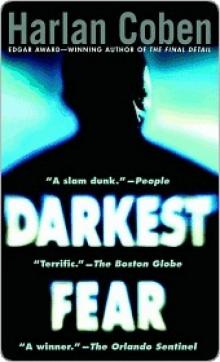 Darkest Fear
Darkest Fear The Stranger
The Stranger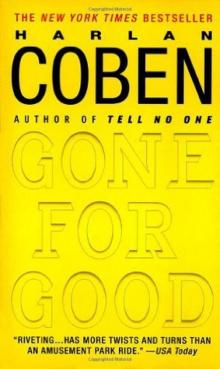 Gone for Good
Gone for Good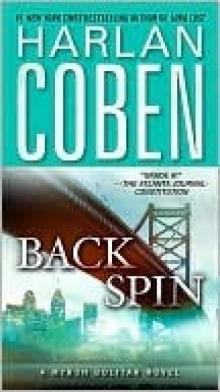 Back Spin
Back Spin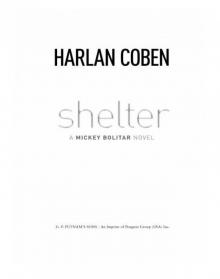 Shelter
Shelter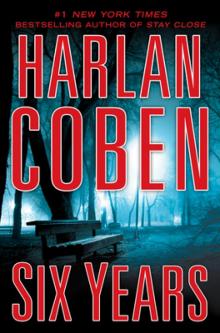 Six Years
Six Years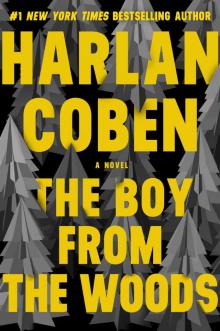 The Boy from the Woods
The Boy from the Woods Missing You
Missing You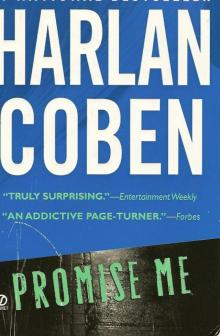 Promise Me mb-8
Promise Me mb-8 The Final Detail: A Myron Bolitar Novel
The Final Detail: A Myron Bolitar Novel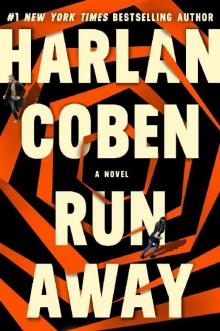 Run Away
Run Away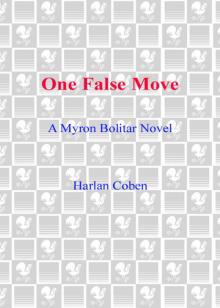 One False Move: A Myron Bolitar Novel
One False Move: A Myron Bolitar Novel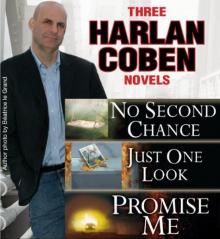 Three Harlan Coben Novels
Three Harlan Coben Novels the Woods (2007)
the Woods (2007) Tell No One (2001)
Tell No One (2001) the Innocent (2005)
the Innocent (2005)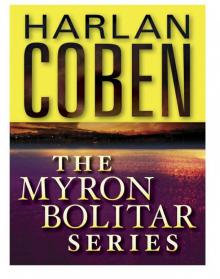 The Myron Bolitar Series 7-Book Bundle
The Myron Bolitar Series 7-Book Bundle Gone for Good (2002)
Gone for Good (2002) Caught (2010)
Caught (2010) Hold Tight (2008)
Hold Tight (2008)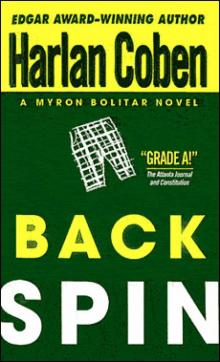 04 - Back Spin
04 - Back Spin Miracle Cure (1991)
Miracle Cure (1991) Harlan Coben 3 Novel Collection
Harlan Coben 3 Novel Collection Just One Look (2004)
Just One Look (2004)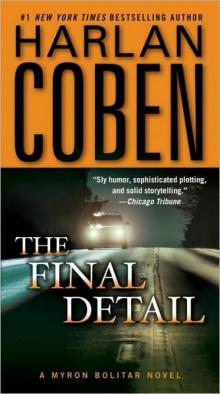 The Final Detail mb-6
The Final Detail mb-6 Play Dead (2010)
Play Dead (2010)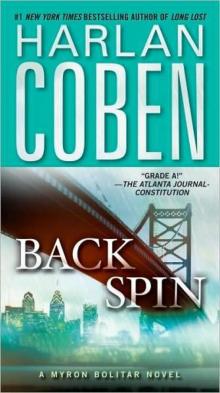 Back Spin mb-4
Back Spin mb-4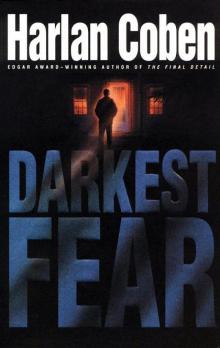 Darkest Fear mb-7
Darkest Fear mb-7